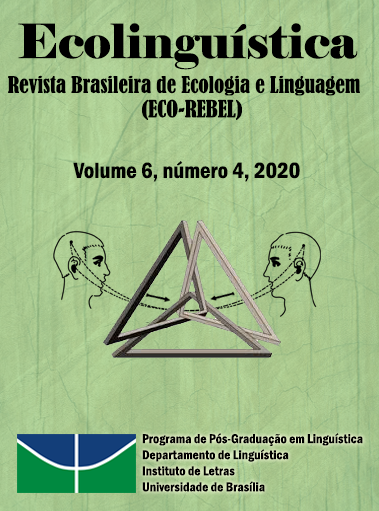Go for the Gaiacene! Knowledge, Culture and Corona
Keywords:
Anthropocene; Rationality; Transforming science; Needs of the future; Ecolinguistics; UncertaintyAbstract
The author of a book on the errors of the Anthropocene ”“ a leading German ecolinguist ”“ sees parallels between the illness caused by the new Covid 19-virus and the illness of the earth caused by the Anthropocene. We have to learn that science does not mean certainty but organizing uncertainty according to rational arguments. And rationality is culture-dependent as well as universal at the same time. The ecolinguistic view on language is pioneering this understanding by including the environments of languages into its scientific scope and widening its horizon towards learning from different cultures. One of the stupidities of the present age is neglecting cognition in favour of communication and simplifying that by the English-only-fashion. That is an example for the superficiality of the Anthropocene and its pursuit of convenience. We should aim at its replacement by a Gaiacene as soon as possible.
Downloads
Downloads
Published
How to Cite
Issue
Section
License
Copyright (c) 2020 Ecolinguística: Revista brasileira de ecologia e linguagem (ECO-REBEL)

This work is licensed under a Creative Commons Attribution-NonCommercial-NoDerivatives 4.0 International License.
Authors who publish in this journal agree to the following terms:
Authors retain copyright and grant the journal the right of first publication. The work is simultaneously licensed under the Creative Commons Attribution License allowing the sharing of the work with acknowledgment of the authorship of the work and initial publication in this journal.
Authors are authorized to enter into additional contracts separately for non-exclusive distribution of the version of the work published in this journal (e.g., publishing in institutional repositories or as book chapters), with acknowledgment of authorship and initial publication in this journal.
Authors are allowed and encouraged to post and distribute their work online (e.g., in institutional repositories or on their personal page) at any point before or during the editorial process, as this can bring about productive revisions as well as increase impact.
Citation of published works (See The Effect of Free Access).



3.png)



